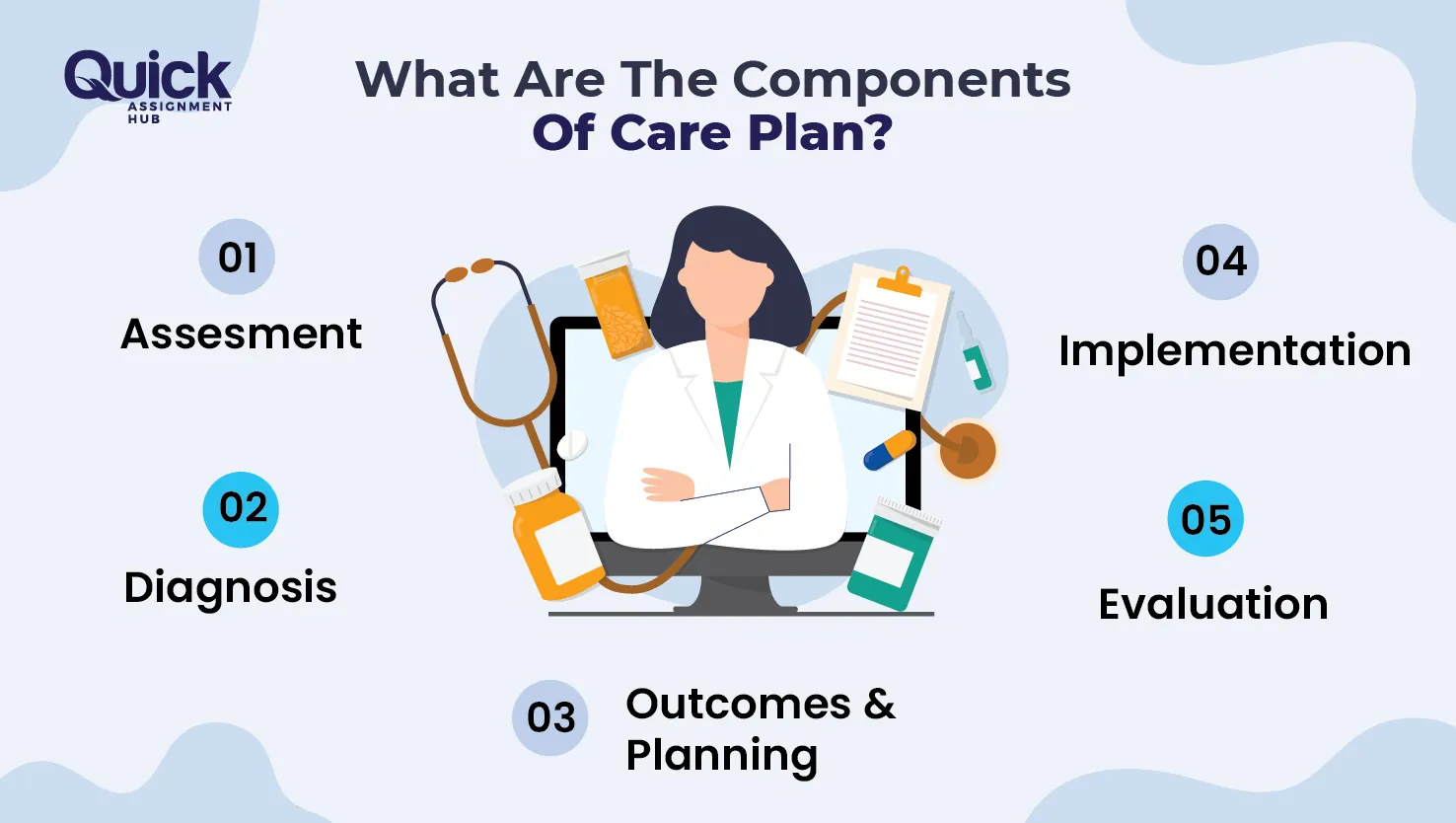
As a student of nursing, there is a high probability that you have heard the term nursing care plan. However, besides being a technical lesson in the classroom, it is one of the greatest resources you will have access to as a nurse to administer quality, organised and personalised patient care. A care plan is not only documentation; it is a link between theory and practice, and it guarantees your patients optimal and sustained treatment.
In this blog, we are going to unveil what is a nursing care plan, why it is essential and what constitutes a good plan and how to write a nursing care plan that will impress your professors as well as potential employers.
In its essence, a nursing care plan is a formulation that involves a document that describes the requirements of a patient, the necessary nursing interventions, and the subsequent effects of such measures. You can imagine it as a care itinerary, the one that can keep you well-organised and allows nothing to be forgotten during the treatment process. Have you ever wondered, “What are care plans in nursing?” The answer is simply a set of plan blueprints specific to every patient. They are dynamic, implying that they can change as the condition of the patient alters.
You may ask yourself, ‘Why spend so much time developing a care plan?’ All it takes is the guarantee of continuous maintenance, security, and high-quality care. In the case of involving various healthcare personnel, there is no misunderstanding or overlap, with a clear plan, thus the recovery of the patient is more effective.
In addition to that, the following aspects are indispensable in care plans:
Adherence to practice standards and documentation legal requirements.
Mastering the art of communication among nurses, doctors, and other people.
Giving an unambiguous indication of the clinical choices.
What are nursing care plans, in short? They form the basis of safe, coordinated and patient-centred care.
Also read: Best Practices In Writing A Perfect Nursing Assignment

Starting with how you can write a nursing care plan, you must first know what its main parts are. A proper plan normally comprises:
Assessment: Captured and analysed data of the patients, like vital signs, symptoms, history and more.
Diagnosis: The establishment of real or possible health problems based on the adopted NANDA statements.
Goals/Outcomes: To establish achievable short-term and long-term goals, which are measurable.
Interventions: Enumerating some of the nursing activities to meet those objectives.
Rationale: Justification of the need for each of the interventions with reliance on evidence-based practice.
Evaluation: Ascertainment of whether set goals have been achieved and change of plan where necessary.
Most of the nursing care plan examples that you are likely to come across in your studies have this format.
Learn more about: Types of Nursing Assignments
Getting a proper plan does not need to be so complicated. This is one step at a time that you can apply each time:
Begin Using A Comprehensive Assessment: Observe the patient, interview them and review the medical records to obtain all available information about the patient. Your plan will be better the more accurate your assessment is.
Nursing Diagnosis: Identify health issues with the aid of NANDA considerations. Mingling medical diagnoses with nursing is a no-no-you are trained to care about patient reactions, not to make the disease vanish.
Put Reasonable Expectations: An example would be that the patient will practice proper use of the inhaler within 2 days, and this is specific and measurable.
Nursing Interventions List: List independent actions nurse-led as well as dependent ones, a physician's order.
State Your Reason: Support your interventions with research/clinical reasoning-professors enjoy reading about evidence-based thinking.
Review And Edit: Review the care plan on a regular basis and update it as it is necessary.
Even when looking at nursing care plan examples, you would realise that the most effective nursing care plans are short, patient-focused, and logically formatted. You can devise them quickly and efficiently, with practice.
Although you now know what care plans are in nursing, putting this into practice in your assignments may remain an intimidating process, particularly when there are deadlines, clinical placement, and exams to contend with. Quick Assignment Hub is the place where you can be your academic rescuer. Here are the reasons why students like you choose our nursing assignment help:
Qualified Nurses: Our team includes qualified nurses who know precisely what care plans are in nursing and how they are best presented academically.
Personalised Assignments: No standardised formulas; all care plans are made unique to your case scenario.
Evidence-Based Assignment: We rely on the use of evidence to back up every intervention and reason.
On-Time Delivery: Be it one care plan or 20 plus case studies you require, we make sure we do not miss your deadlines without any drop in quality.
Understanding how to develop care plans is one skill you will take into the nursing profession with you. The more practice you have, the more likely you will feel confident to turn patient information into a practical, evidence-based intervention. It is related to what care plans in nursing are. Not mere tasks, but they are the foundation of great care for a patient. And in case you ever perceive that you are helpless, then be assured that you have help from Quick Assignment Hub.